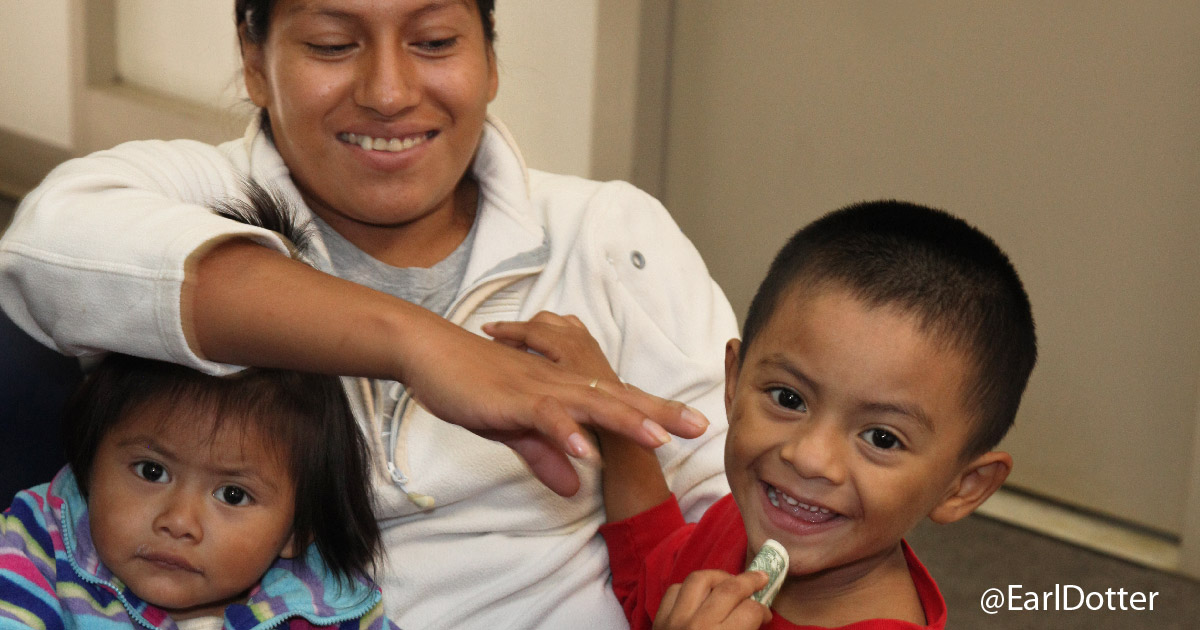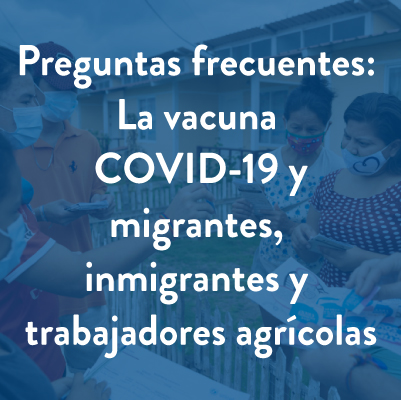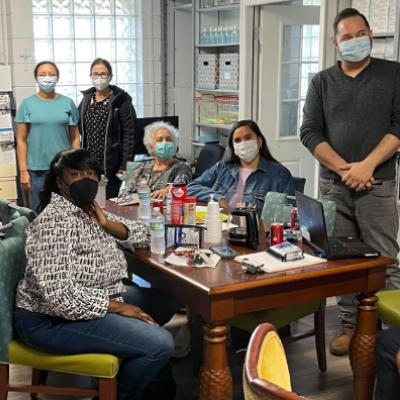- Who We Are
- Clinician Employment
- Publications
- Witness to Witness (W2W)
- El Premio Kugel & Zuroweste a la Justicia en la Salud
- Your Voice Matters: Photovoice Project
Wed, 07/29/2015 | by Claire Hutkins Seda


Yesterday, Luis Zayas, PhD, a member of MCN’s External Advisory Board, offered testimony to members of congress and others at the Family Detention Forum in Washington DC, hosted by the Congressional Progressive Caucus and the House Judiciary Democrats, with the support of the Congressional Hispanic Caucus, the Congressional Asian Pacific American Caucus, and the Congressional Black Caucus. Dr. Zayas has been at the forefront of the nationwide discussion on family immigration centers. He spoke to MCN earlier this month about his experiences at the Dilley and Karnes facilities and his perspectives on the effect that detention is having on the women and children who are housed there.
As the women and children held in family immigration centers are released, we recognize that many may arrive in our exam rooms. We as clinicians serving mobile and underserved populations need to understand the complex realities of their lives and their long, often traumatic migration stories -- including their experiences in the immigration facilities -- to best serve their health needs. It is also very important for clinicians to contribute to solutions that will protect and nurture future immigrants who cross the border. The following testimony, unedited and provided in full, is courtesy of Luis Zayas, PhD.
Good afternoon, Ladies and Gentlemen of Congress, distinguished guests, and fellow panelists. My name is Luis H. Zayas. I am Dean of the School of Social Work at The University of Texas at Austin. I am a licensed clinical social worker and license psychologist, specializing in child and adolescent mental health and family functioning.
I want to thank the Members of Congress, the Congressional Progressive Caucus, the Judiciary Democrats, the Congressional Hispanic Caucus, the Congressional Black Caucus, and the Congressional Asian Pacific American Caucus for the opportunity to address you.
My career—spanning forty years—has been devoted to serving low-income families, mostly African American and Hispanic. Over those forty years I have seen my share of suffering.
But I have never seen anything like the devastation that prolonged detention has on already traumatized refugee children and mothers. Detention is unnatural for children, particularly when it employs the penal mentality of private prison companies, treating them like criminals.
I have evaluated nearly 30 children and 18 mothers at the Karnes and at Dilley in the past year. I hear from many mothers and children everything Ms. Sonia Hernandez* described. I have seen the damaging effects: regressions in children’s behavior; suicidal ideation in teenagers; nightmares and night terrors; and pathological levels of depression, anxiety, hopelessness, and despair. I have seen disrupted family relations, parental authority undermined; and I have evaluated deeply depress mothers, and one who attempted suicide by cutting her arms, as Ms. Hernandez mentioned. Her attempt occurred after she was told by a prison guard that her bond would be $8500 and after her 4-year-old daughter had been denied medical care for over a week for a vaginal discharge. Much of this is documented in the affidavit I provided for the Flores Settlement lawsuit.
These adversities will impair brain development and the functions that aid cognition, judgment, self-control, trust, and social interactions. All of these disorders will take years of treatment to repair.
For over a year, the Department of Homeland Security and Immigration and Customs Enforcement have conducted a horrible experiment, one that would not pass any human subjects board of any great research institution. I could go on and on about how the trauma of detention is heaped on already-traumatized children. I could go on about scientific evidence. But I want to look forward not back.
We are delighted that Judge Gee in the Central District of California has ruled that the government is in violation of the Flores Settlement. And I ask you to implore the government not to appeal the judge’s ruling.
In looking ahead, I want to offer a vision and suggest different approaches to managing refugee children and mothers. There is still much to be done.
We must bring down the walls and the barbed wires, remove the prison guards, and change our entire approach. And we must see to it that it never happens again. If we are to apprehend mothers and children at the border, our government must act as guardian not prison guard, as protector not prosecutor.
If we must detain these mothers and children at the border then we need new models.
We need village-like environments that resemble communities, not prisons. They should be operated by capable licensed non-profit social service and child welfare agencies using evidence-based best practices. Staff should be counselors and advisors, case managers and aides.
We must insist that the detention of mothers and children seeking refuge last no longer than 14 days. No mother I met ever expected to be permitted entry into our country without some accountability. Mothers expected to be apprehended and detained. But none ever imagined indefinite stays of 3, 6, even 10 months.
Detentions of up to two weeks—only a fraction of what some of our children spend in summer camp—would be time for recovery from the children’s harrowing journeys and preparation for the life journey ahead.
Please imagine with me a two-week detention period filled with hope, help, and preparation. Please imagine a highly programmed two-week period, an intensive camp-like experience, a resettlement period that would be a beehive of activity, not a dull, idle prison life. Imagine that while dedicated attorneys are helping mothers with their asylum cases, others would be preparing mothers and children for the future. Instead of a prisoner’s existence, we would see:
1. Pediatricians, family doctors, nurses, and dentists screening and immunizing children, treating illnesses and diseases, generating a medical record that families can take to their destinations;
2. [We would see] Social workers conducting psychosocial evaluations and assessing family needs, and making connections to clinics, schools, churches, non-profit groups, and government agencies in their destination cities. [We would see] psychiatric specialists assessing those with deep psychological disorders and prescribing treatments.
3. [We would see] Law students and social work interns leading groups to help mothers and children adapt to life in American towns—to understand our legal system; how our school system works and how they can prepare for it; American culture and customs; and preparing them to fit into life in America.
4. Imagine seeing teachers teaching children English and operating classes the way we do in the U.S. to give children a glimpse of what it will be like. These educators would document children’s schooling needs, generating educational reports that follow children to their next schools.
5. [We would see] Dieticians and nutritionists teaching children and mothers about healthy cooking and eating, and the value of physical exercise. Recreation and art therapists would be at work keeping children’s imaginations active and engaged.
6. [We would see] At the end of a long day, family-style dinners prepared by the mothers would be served in small groups, approximating a home life, approximating normalcy.
Behavioral and social scientists, like me, would be conducting studies to examine the effects of short-term detention and evaluating the effectiveness of our programs.
Members of Congress, we can do this in fourteen days. It must, however, operate in the spirit of safety and compassion, not punishment. It must operate with the core principle of family law: the standard of the best interest of the child (and family).
Under such conditions, refugee children and mothers will be able to give witness to the compassionate nation that is the United States of America.
Thank you very much.
Like what you see? Amplify our collective voice with a contribution.
Return to the main blog page or sign up for blog updates here.
Good afternoon, Ladies and Gentlemen of Congress, distinguished guests, and fellow panelists. My name is Luis H. Zayas. I am Dean of the School of Social Work at The University of Texas at Austin. I am a licensed clinical social worker and license psychologist, specializing in child and adolescent mental health and family functioning.
I want to thank the Members of Congress, the Congressional Progressive Caucus, the Judiciary Democrats, the Congressional Hispanic Caucus, the Congressional Black Caucus, and the Congressional Asian Pacific American Caucus for the opportunity to address you.
My career—spanning forty years—has been devoted to serving low-income families, mostly African American and Hispanic. Over those forty years I have seen my share of suffering.
But I have never seen anything like the devastation that prolonged detention has on already traumatized refugee children and mothers. Detention is unnatural for children, particularly when it employs the penal mentality of private prison companies, treating them like criminals.
I have evaluated nearly 30 children and 18 mothers at the Karnes and at Dilley in the past year. I hear from many mothers and children everything Ms. Sonia Hernandez described. I have seen the damaging effects: regressions in children’s behavior; suicidal ideation in teenagers; nightmares and night terrors; and pathological levels of depression, anxiety, hopelessness, and despair. I have seen disrupted family relations, parental authority undermined; and I have evaluated deeply depress mothers, and one who attempted suicide by cutting her arms, as Ms. Hernandez mentioned. Her attempt occurred after she was told by a prison guard that her bond would be $8500 and after her 4-year-old daughter had been denied medical care for over a week for a vaginal discharge. Much of this is documented in the affidavit I provided for the Flores Settlement lawsuit.
These adversities will impair brain development and the functions that aid cognition, judgment, self-control, trust, and social interactions. All of these disorders will take years of treatment to repair.
For over a year, the Department of Homeland Security and Immigration and Customs Enforcement have conducted a horrible experiment, one that would not pass any human subjects board of any great research institution. I could go on and on about how the trauma of detention is heaped on already-traumatized children. I could go on about scientific evidence. But I want to look forward not back.
We are delighted that Judge Gee in the Central District of California has ruled that the government is in violation of the Flores Settlement. And I ask you to implore the government not to appeal the judge’s ruling.
In looking ahead, I want to offer a vision and suggest different approaches to managing refugee children and mothers. There is still much to be done.
We must bring down the walls and the barbed wires, remove the prison guards, and change our entire approach. And we must see to it that it never happens again. If we are to apprehend mothers and children at the border, our government must act as guardian not prison guard, as protector not prosecutor.
If we must detain these mothers and children at the border then we need new models.
We need village-like environments that resemble communities, not prisons. They should be operated by capable licensed non-profit social service and child welfare agencies using evidence-based best practices. Staff should be counselors and advisors, case managers and aides.
We must insist that the detention of mothers and children seeking refuge last no longer than 14 days. No mother I met ever expected to be permitted entry into our country without some accountability. Mothers expected to be apprehended and detained. But none ever imagined indefinite stays of 3, 6, even 10 months.
Detentions of up to two weeks—only a fraction of what some of our children spend in summer camp—would be time for recovery from the children’s harrowing journeys and preparation for the life journey ahead.
Please imagine with me a two-week detention period filled with hope, help, and preparation. Please imagine a highly programmed two-week period, an intensive camp-like experience, a resettlement period that would be a beehive of activity, not a dull, idle prison life. Imagine that while dedicated attorneys are helping mothers with their asylum cases, others would be preparing mothers and children for the future. Instead of a prisoner’s existence, we would see:
1. Pediatricians, family doctors, nurses, and dentists screening and immunizing children, treating illnesses and diseases, generating a medical record that families can take to their destinations;
2. [We would see] Social workers conducting psychosocial evaluations and assessing family needs, and making connections to clinics, schools, churches, non-profit groups, and government agencies in their destination cities. [We would see] psychiatric specialists assessing those with deep psychological disorders and prescribing treatments.
3. [We would see] Law students and social work interns leading groups to help mothers and children adapt to life in American towns—to understand our legal system; how our school system works and how they can prepare for it; American culture and customs; and preparing them to fit into life in America.
4. Imagine seeing teachers teaching children English and operating classes the way we do in the U.S. to give children a glimpse of what it will be like. These educators would document children’s schooling needs, generating educational reports that follow children to their next schools.
5. [We would see] Dieticians and nutritionists teaching children and mothers about healthy cooking and eating, and the value of physical exercise. Recreation and art therapists would be at work keeping children’s imaginations active and engaged.
6. [We would see] At the end of a long day, family-style dinners prepared by the mothers would be served in small groups, approximating a home life, approximating normalcy.
Behavioral and social scientists, like me, would be conducting studies to examine the effects of short-term detention and evaluating the effectiveness of our programs.
Members of Congress, we can do this in fourteen days. It must, however, operate in the spirit of safety and compassion, not punishment. It must operate with the core principle of family law: the standard of the best interest of the child (and family).
Under such conditions, refugee children and mothers will be able to give witness to the compassionate nation that is the United States of America.
Thank you very much.







